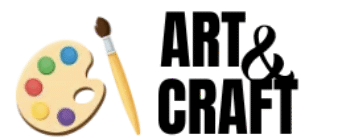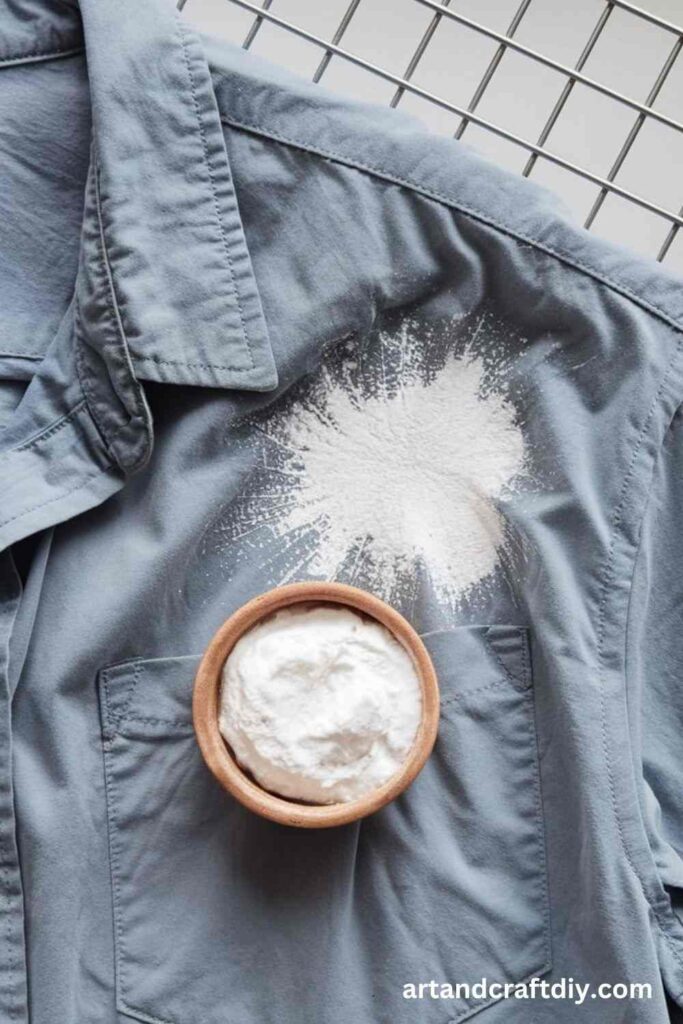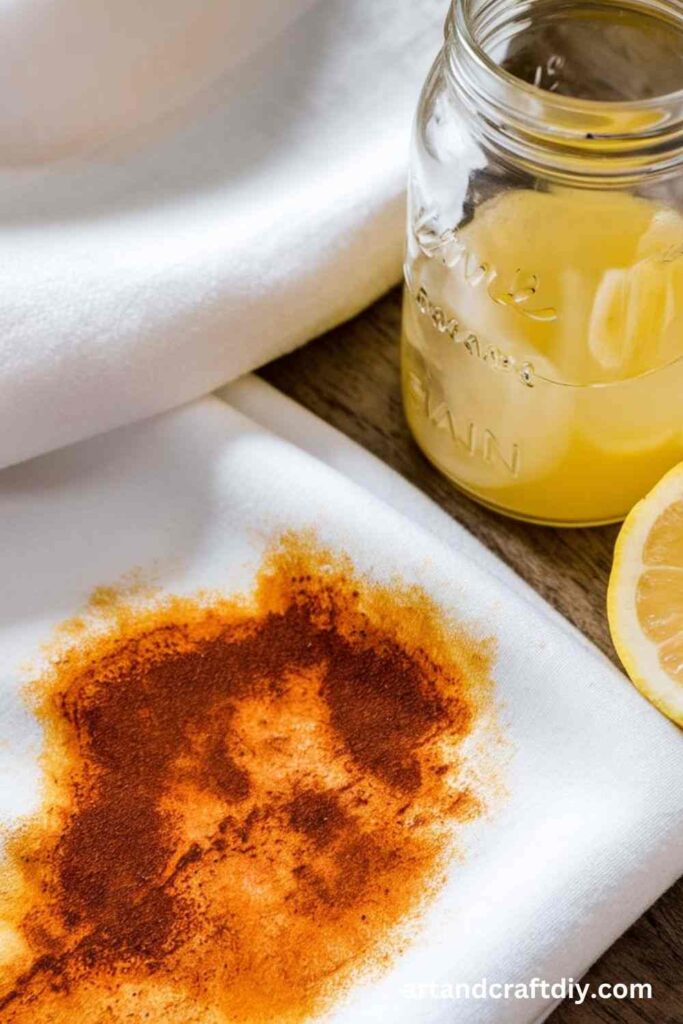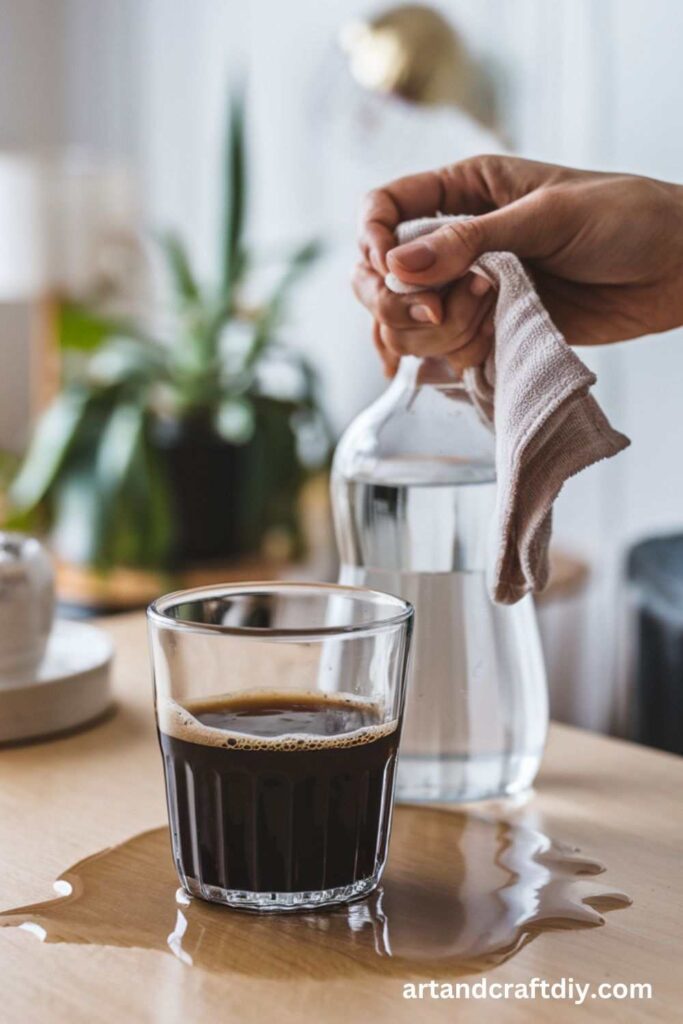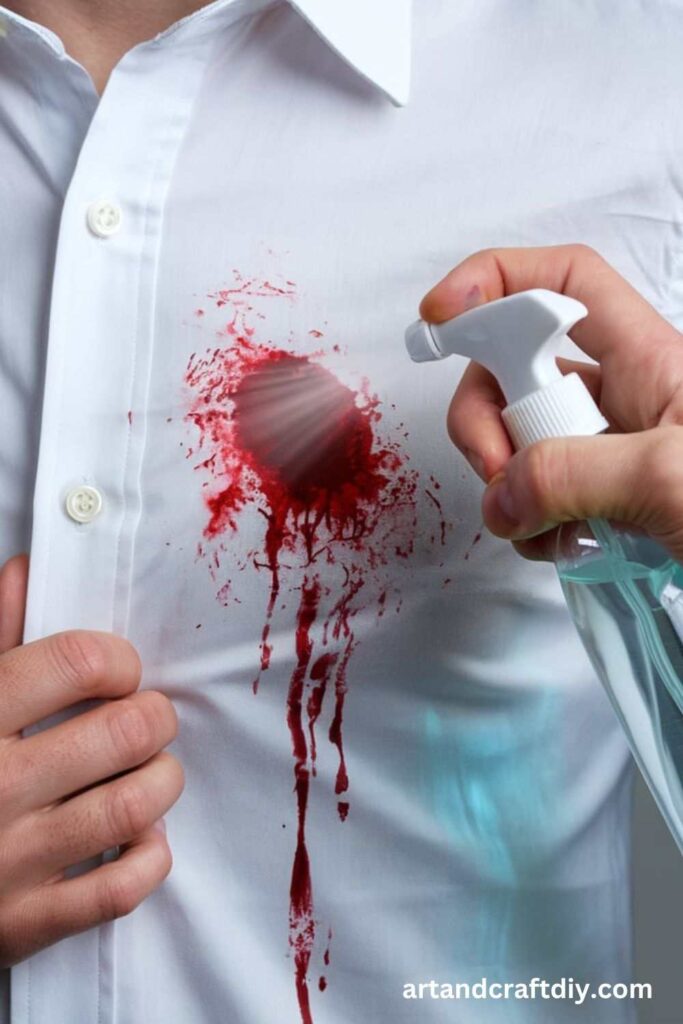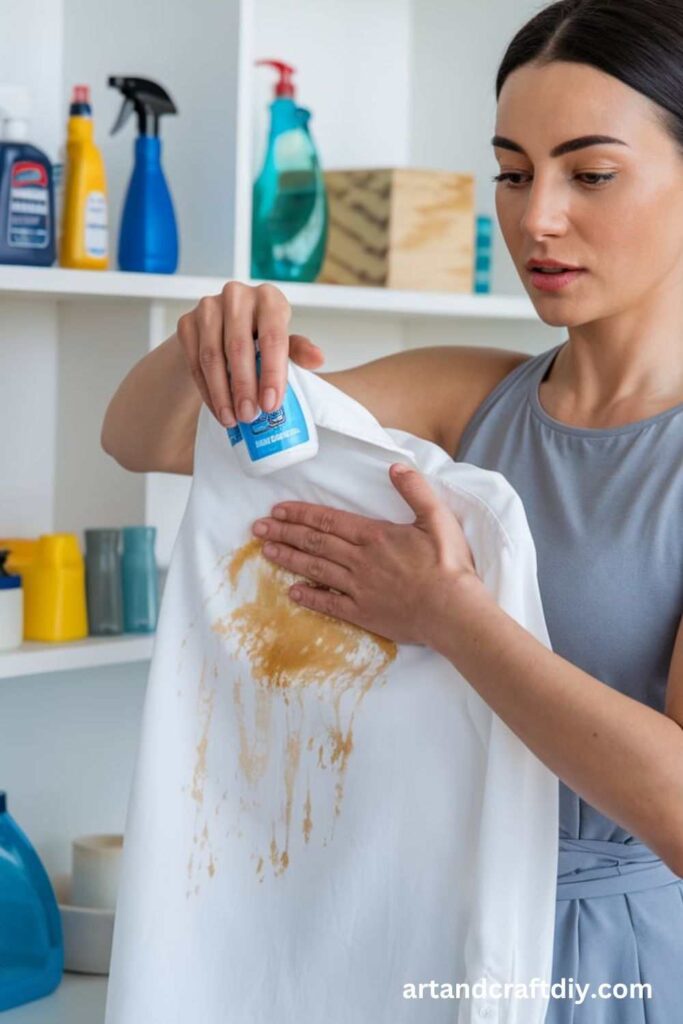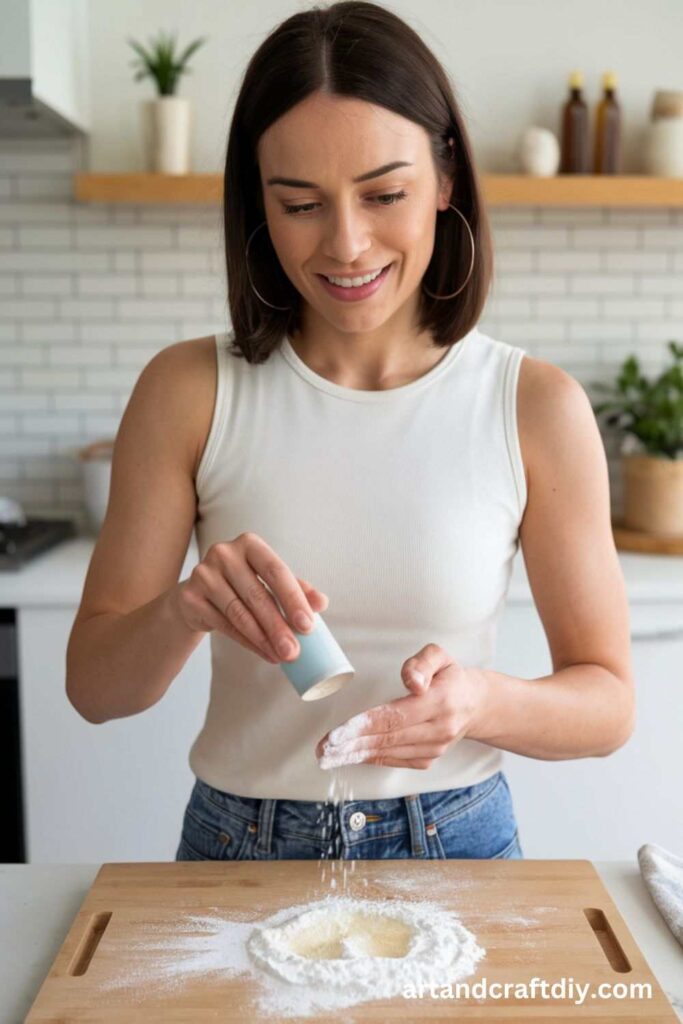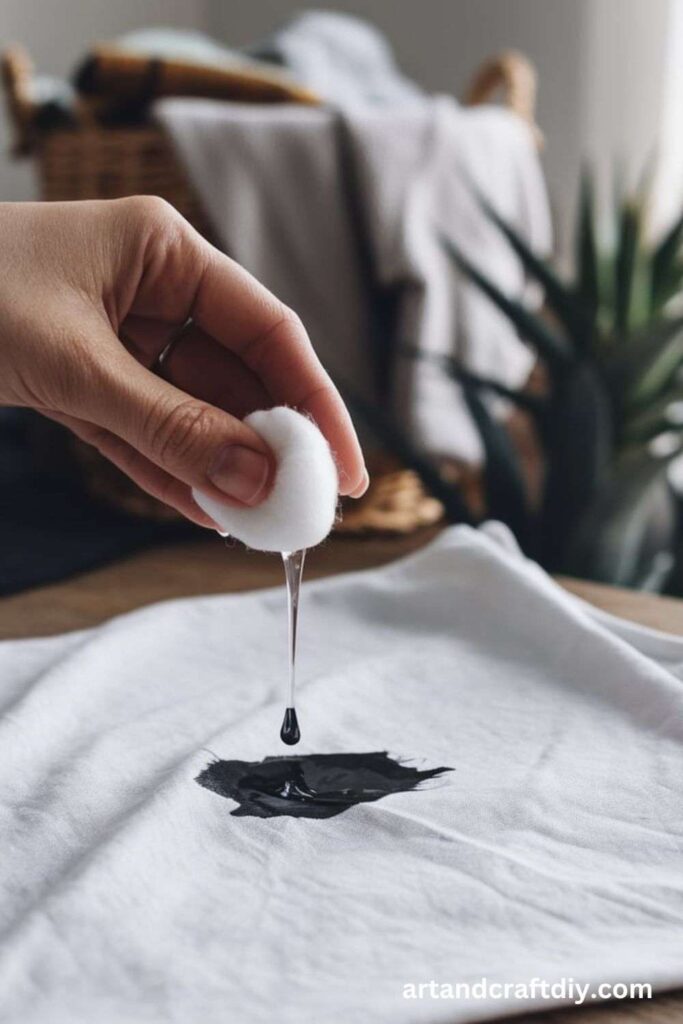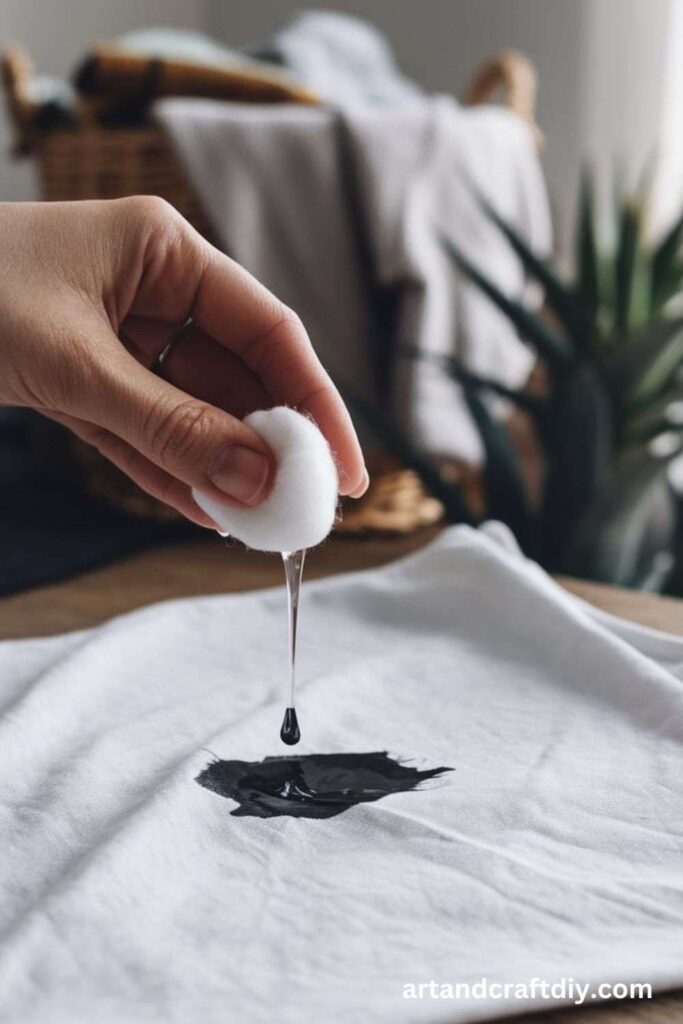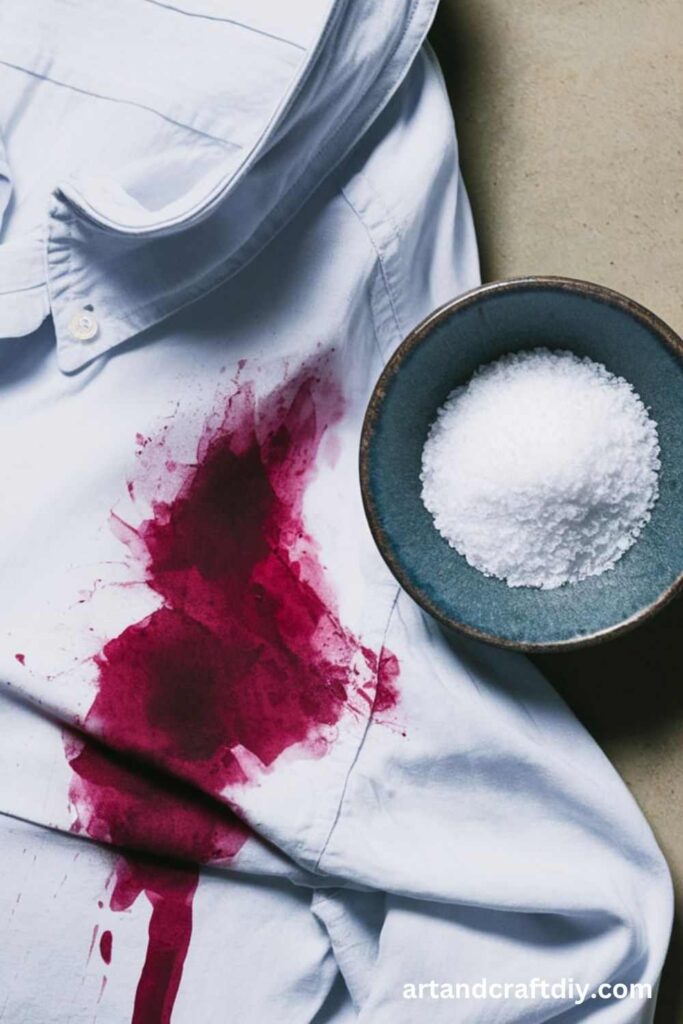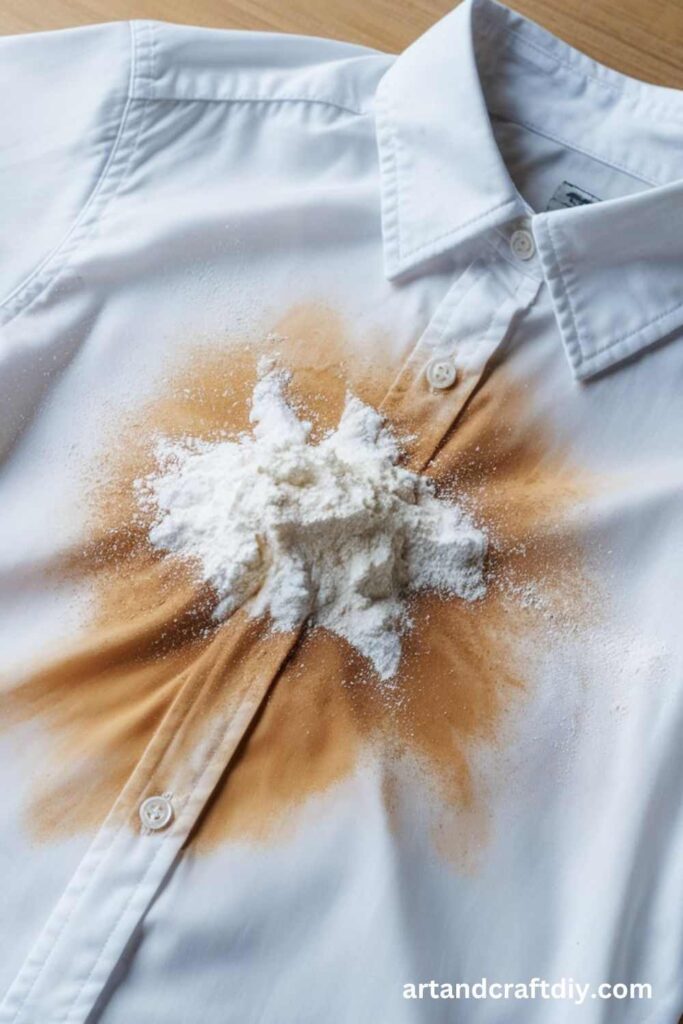Stains are a common nuisance in everyday life, whether from food, drinks, oils, or ink. The ability to remove stains quickly is crucial to maintaining the longevity and appearance of clothing, fabrics, and surfaces. Quick stain removal not only helps in preserving items but also prevents stains from setting in, which can make them more difficult to eliminate. Different stains require specific methods and techniques for effective removal, so understanding how to tackle them can make all the difference. This guide will provide useful Stain Removal Tips, covering various stains and their corresponding techniques, helping you handle any spill or accident with ease.
Stains are an inevitable part of daily life, often appearing when we least expect them. Whether it’s a splash of coffee on your favorite shirt, a drop of oil on the couch, or ink splattering on the carpet, stains can be frustrating and time-consuming to remove. However, quick stain removal is essential not only for preserving the aesthetic appeal of fabrics and surfaces but also for preventing the stain from setting in, which can make it harder to remove later.
Stain Removal Tips
Stain removal tips are simple techniques and solutions designed to help you tackle common stains on clothing, upholstery, carpets, and more. By acting quickly and using the right method, you can effectively remove a variety of stains, such as food, ink, grease, and wine. Some common Stain Removal Tips include using household products like baking soda, vinegar, or dish soap, while others Stain Removal Tips involve specific stain removers or techniques for different fabrics and materials.
Baking Soda for Sweat Stains
Baking soda is a powerful, natural deodorizer and stain remover. It’s perfect for tackling yellow underarm stains on shirts.
- Baking soda
- Water
- A toothbrush
Steps:
- Make a paste by mixing 4 tablespoons of baking soda with a quarter cup of water.
- Apply the paste directly to the sweat stains on your shirt.
- Let it sit for about 30 minutes to allow the baking soda to work.
- Scrub gently with a toothbrush to lift the stain.
- Rinse the area with water, and launder as usual.
Lemon Juice for Rust Stains
Lemon juice is a natural acid that can break down rust, which is perfect for stubborn rust stains.
- Lemon juice
- Salt
- A soft cloth
Steps:
- Squeeze fresh lemon juice directly onto the rust stain.
- Sprinkle some salt over the lemon juice to help with scrubbing.
- Let it sit for 30 minutes before gently rubbing the stain with a soft cloth.
- Rinse with cold water, and wash as usual.
White Vinegar for Coffee Stains
White vinegar neutralizes odors and breaks down coffee stains effectively.
- White vinegar
- Water
- A clean cloth
Steps:
- Mix one part vinegar with two parts water.
- Soak the cloth in the solution and blot the coffee stain with it.
- Press gently to absorb the coffee, being careful not to spread the stain.
- Rinse with water, and wash the garment as usual.
Hydrogen Peroxide for Blood Stains
Hydrogen peroxide is an excellent stain remover, particularly for protein-based stains like blood.
- Hydrogen peroxide (3%)
- Cold water
- A clean cloth
Steps:
- Pour hydrogen peroxide directly onto the blood stain.
- Allow it to bubble and sit for a few minutes.
- Gently blot the area with a cloth to lift the stain.
- Rinse with cold water, and launder the item as usual.
Dish Soap for Grease Stains
Dish soap works wonders for cutting through greasy stains, like those from food or oil.
- Dish soap (preferably grease-cutting)
- Water
- A soft brush
Steps:
- Apply a few drops of dish soap directly onto the grease stain.
- Rub it in gently with your fingers or a soft brush.
- Let it sit for 10–15 minutes to allow the soap to break down the grease.
- Rinse with warm water, and wash the item as usual.
Cornstarch for Oil Stains
Cornstarch is a highly absorbent substance that works effectively on oil stains.
- Cornstarch
- A soft brush
- Dish soap
Steps:
- Sprinkle cornstarch generously over the oil stain.
- Let it sit for 30 minutes to absorb the oil.
- Brush off the cornstarch, then apply dish soap directly to the stain.
- Scrub gently, rinse with warm water, and wash the item as usual.
Baking Soda for Ink Stains
Baking soda helps lift ink stains from fabric by absorbing the pigment.
Materials Needed:
- Baking soda
- Water
- A toothbrush
Steps:
- Create a paste by mixing 3 tablespoons of baking soda with water.
- Apply the paste to the ink stain and let it sit for 10–15 minutes.
- Gently scrub the paste with a toothbrush to loosen the ink.
- Rinse with cold water and launder as usual.
Rubbing Alcohol for Ink Stains
Rubbing alcohol can dissolve ink stains, especially on delicate fabrics.
Materials Needed:
- Rubbing alcohol
- Cotton ball or cloth
- Water
Steps:
- Dampen a cotton ball or cloth with rubbing alcohol.
- Gently blot the ink stain with the alcohol-soaked cloth.
- Continue blotting until the ink begins to lift.
- Rinse the area with cold water, and wash as usual.
Salt for Red Wine Stains
Salt absorbs liquid quickly and can help remove red wine stains from fabric.
Materials Needed:
- Salt
- Cold water
- Paper towels
Steps:
- Pour a generous amount of salt over the red wine stain.
- Allow the salt to sit and absorb the wine for about 10 minutes.
- Rinse with cold water, then wash the fabric as usual.
Baby Powder for Grease and Oil Stains
Baby powder can absorb oils and grease, making it easier to clean greasy stains.
Materials Needed:
- Baby powder
- A soft cloth
- Dish soap
Steps:
- Sprinkle baby powder over the greasy stain and let it sit for 30 minutes.
- Gently blot the powder with a soft cloth.
- Apply dish soap to the remaining stain and scrub gently.
- Rinse with warm water and wash the fabric as usual.
Club Soda for Fabric Stains
Club soda is a great option for removing a variety of fabric stains, including food and drink spills.
Materials Needed:
- Club soda
- A clean cloth
- Water
Steps:
- Pour a small amount of club soda directly onto the stain.
- Use a clean cloth to blot the area and lift the stain.
- Continue blotting until the stain is gone.
- Rinse with water, then launder as usual.
Vinegar for Sweat Stains
Vinegar is a natural option to break down the salts in sweat and remove yellow stains.
Materials Needed:
- White vinegar
- Baking soda
- Water
Steps:
- Mix equal parts white vinegar and water in a spray bottle.
- Spray the solution onto the stained area and let it sit for 30 minutes.
- Sprinkle baking soda on top and scrub gently with a brush.
- Rinse with cold water and wash the item.
Ammonia for Blood Stains
Ammonia is an effective tool to break down blood stains, especially on fabric.
Materials Needed:
- Ammonia
- Cold water
- A clean cloth
Steps:
- Mix a tablespoon of ammonia with a cup of cold water.
- Dampen a cloth with the solution and blot the blood stain.
- Continue blotting until the stain is gone.
- Rinse the area thoroughly with cold water, then wash the item.
Toothpaste for Crayon Marks
Toothpaste can remove crayon marks from walls or fabrics.
Materials Needed:
- Toothpaste (non-gel)
- A toothbrush
- Water
Steps:
- Apply a small amount of toothpaste to the crayon stain.
- Scrub gently with a toothbrush to break up the waxy stain.
- Wipe the area clean with a damp cloth.
- Rinse with water, and launder as needed.
Glycerin for Sticker Residue
Glycerin can soften sticky residues from stickers or adhesives.
Materials Needed:
- Glycerin
- A soft cloth
- Water
Steps:
- Apply glycerin to the sticky area and let it sit for a few minutes.
- Use a soft cloth to rub the residue gently.
- Once the residue lifts, rinse with water.
Cream of Tartar for Ink Stains
Cream of tartar works to lift ink stains from most fabrics and surfaces.
Materials Needed:
- Cream of tartar
- Water
- A toothbrush
Steps:
- Create a paste by mixing cream of tartar with a small amount of water.
- Apply the paste to the ink stain.
- Scrub gently with a toothbrush until the stain is lifted.
- Rinse with water and wash as usual.
Borax for Mold Stains
Borax is a powerful cleaner for removing mold and mildew stains from fabrics.
Materials Needed:
- Borax
- Water
- A sponge
Steps:
- Mix 1/4 cup of borax with a quart of water.
- Soak a sponge in the solution and scrub the moldy area.
- Let it sit for 15–30 minutes before rinsing with water.
Shaving Cream for Makeup Stains
Shaving cream helps break down makeup stains, especially those from foundation or mascara.
Materials Needed:
- Shaving cream
- A soft cloth
- Water
Steps:
- Apply a small amount of shaving cream directly to the makeup stain.
- Gently rub the shaving cream into the fabric.
- Rinse with cold water and wash the item.
Chalk for Grease Stains
Chalk is absorbent and can help lift grease stains from fabrics.
Materials Needed:
- Chalk
- A soft cloth
- Dish soap
Steps:
- Rub the chalk over the grease stain to absorb the oil.
- Let it sit for 15 minutes.
- Use dish soap to scrub the stain, then rinse with warm water.
Tea Tree Oil for Ink Stains
Tea tree oil can break down the pigment in ink stains, especially on fabrics.
Materials Needed:
- Tea tree oil
- Cotton balls
- Water
Steps:
- Dampen a cotton ball with tea tree oil.
- Blot the ink stain with the cotton ball.
- Continue blotting until the ink begins to lift.
- Rinse with water and wash as usual.
Baby Wipes for Quick Stain Removal
Baby wipes are perfect for quick cleanups of food or dirt stains, especially on clothing.
Materials Needed:
- Baby wipes
Steps:
- Simply rub the baby wipe over the stain, ensuring that you cover the area fully.
- Continue wiping until the stain is gone.
- Wash the item if necessary.
Cornmeal for Grease Stains
Cornmeal can absorb grease from clothing and fabrics.
Materials Needed:
- Cornmeal
- A soft cloth
- Dish soap
Steps:
- Sprinkle cornmeal generously over the grease stain.
- Let it sit for 15–30 minutes to absorb the grease.
- Use a cloth to wipe off the cornmeal, then apply dish soap to the stain.
- Scrub gently and rinse with warm water.
Soda Water for Stains on Upholstery
Soda water can be a lifesaver for minor stains on upholstery.
Materials Needed:
- Soda water
- A clean cloth
Steps:
- Spray soda water directly on the stain.
- Gently blot the area with a clean cloth.
- Continue blotting until the stain is lifted.
OxiClean for Stubborn Stains
OxiClean is a versatile stain remover that can tackle tough stains on clothes, carpets, and more.
Materials Needed:
- OxiClean stain remover
- Water
Steps:
- Dissolve OxiClean in warm water according to the package instructions.
- Soak the stained item in the solution for up to six hours.
- Wash as usual.
Vinegar and Baking Soda for Yellow Stains
The combination of vinegar and baking soda is effective against yellow stains in white clothes.
Materials Needed:
- Vinegar
- Baking soda
- Water
Steps:
- Soak the stained fabric in a solution of water and vinegar (1:1 ratio).
- Sprinkle baking soda on the stain and gently scrub.
- Let it sit for 30 minutes before washing.
Mouthwash for Stain Removal
Mouthwash has disinfectant properties that can help remove stubborn stains like food spills.
Materials Needed:
- Mouthwash
- Water
- A clean cloth
Steps:
- Apply a small amount of mouthwash to the stained area.
- Let it sit for 10–15 minutes.
- Blot with a clean cloth until the stain lifts.
Washing Powder for Sweat Stains
Washing powder is great for breaking down body oils in sweat stains.
Materials Needed:
- Washing powder
- Water
- A sponge
Steps:
- Mix washing powder with a small amount of water to create a paste.
- Apply it directly to the sweat stain.
- Let it sit for 30 minutes, then scrub with a sponge.
- Rinse with water and wash.
Preventative Tips for Stain-Resistant Fabrics and Clothing Care
When it comes to maintaining the appearance and longevity of your clothes, prevention is key. Stain-resistant fabrics, combined with proper care techniques, can make a significant difference in keeping your clothing looking fresh. Here are some helpful Stain Removal Tips to protect your garments from stains and ensure they stay in great condition:
1. Stain-Resistant Fabrics
- Choose fabrics with built-in stain resistance: Look for clothing made from materials such as polyester, nylon, or treated cotton, which often have stain-resistant properties that help repel liquids and dirt.
- Opt for performance fabrics: Many activewear brands now incorporate stain-resistant technologies that make it easier to keep clothes clean, even during high-activity use.
2. Using a Stain Protector Spray
- Apply a protective spray: There are various stain protector sprays available in the market, which create an invisible barrier against spills and stains. Spraying this on your clothes can help prevent liquids from soaking into the fabric.
- Test on an inconspicuous area first: Always test a small patch of the fabric before applying a stain protector to avoid any adverse effects on the color or texture.
Natural & DIY Stain Removal Tips
Stains can be a nuisance, but before you grab chemical-based cleaners, consider trying some simple, eco-friendly solutions that are just as effective. Many everyday household items like baking soda, vinegar, and lemon juice can work wonders in removing various types of stains. Here are some easy and natural DIY Stain Removal Tips:
- Baking Soda and Vinegar
- How it works: The mild abrasiveness of baking soda helps lift stains, while vinegar acts as a natural disinfectant.
- Best for: Removing odors, sweat stains, and general grime from clothes, carpets, and upholstery.
- How to use: Sprinkle baking soda on the stained area, then pour vinegar over it. Let it fizz, then scrub and rinse.
- Lemon Juice
- How it works: Lemon juice is acidic and acts as a natural bleaching agent, great for brightening whites and breaking down grease.
- Best for: Stains on white clothes, as well as grease stains.
- How to use: Apply fresh lemon juice directly to the stain, let it sit for a few minutes, then wash as usual.
FAQ
How can I remove a red wine stain from my clothing?
To remove a red wine stain, blot the stain immediately with a paper towel to soak up excess liquid. Then, apply a mixture of equal parts water and white vinegar. Let it sit for a few minutes, then gently scrub with mild dish soap and rinse with cold water.
What’s the best way to get rid of a coffee stain?
Blot the coffee stain gently with a clean cloth to absorb as much liquid as possible. Then, apply a mixture of 1 part vinegar to 2 parts water and let it sit for about 10 minutes before rinsing with cold water. You can also use baking soda to gently scrub the area.
How do I remove ink stains from fabric?
Dab the ink stain with rubbing alcohol or hand sanitizer using a cotton ball. Blot the stain and repeat the process until it fades, then wash the fabric with warm water and detergent.
Can I remove grease stains from clothes?
Sprinkle baking soda or cornstarch on the grease stain to absorb excess oil. Let it sit for 10-15 minutes, then brush off the powder. Next, apply a small amount of dishwashing liquid and scrub gently before washing with warm water.

Hi, I’m Victoria, an art and craft teacher at Newark City Schools, where I have the joy of working with middle school students to help them explore their creativity and develop their artistic talents. I believe that art is a powerful way for students to express themselves, and I strive to make every lesson a fun, engaging, and inspiring experience.
I created this website to share the art and craft projects, techniques, and resources that I use in my classroom, hoping to inspire both educators and young artists alike. Whether you’re a teacher looking for new ideas or a student eager to try something new, I’m excited to provide creative tools and projects that anyone can enjoy.
When I’m not in the classroom, I love experimenting with different art forms and learning new crafting techniques. My goal is to help others discover the joy of making things with their hands, and I hope my website serves as a space for everyone to explore their creative potential.
